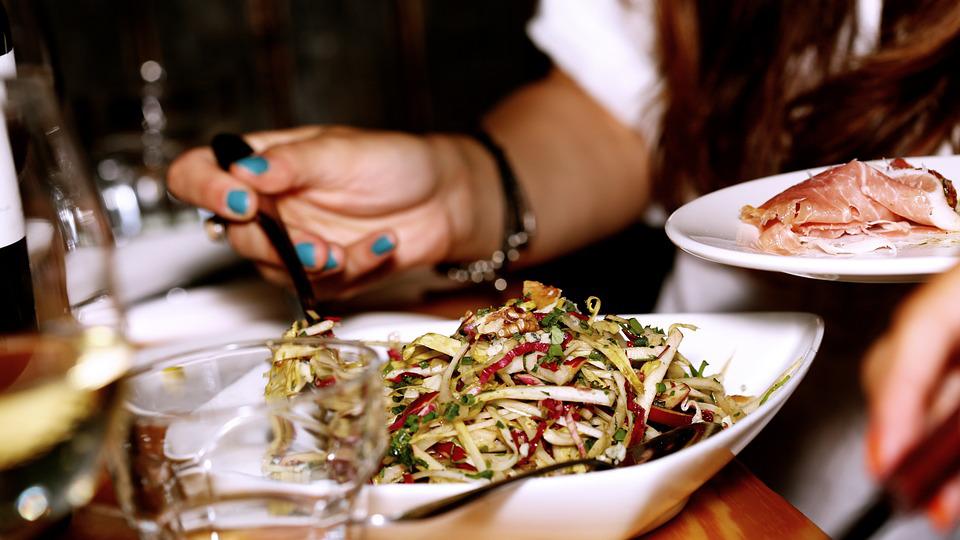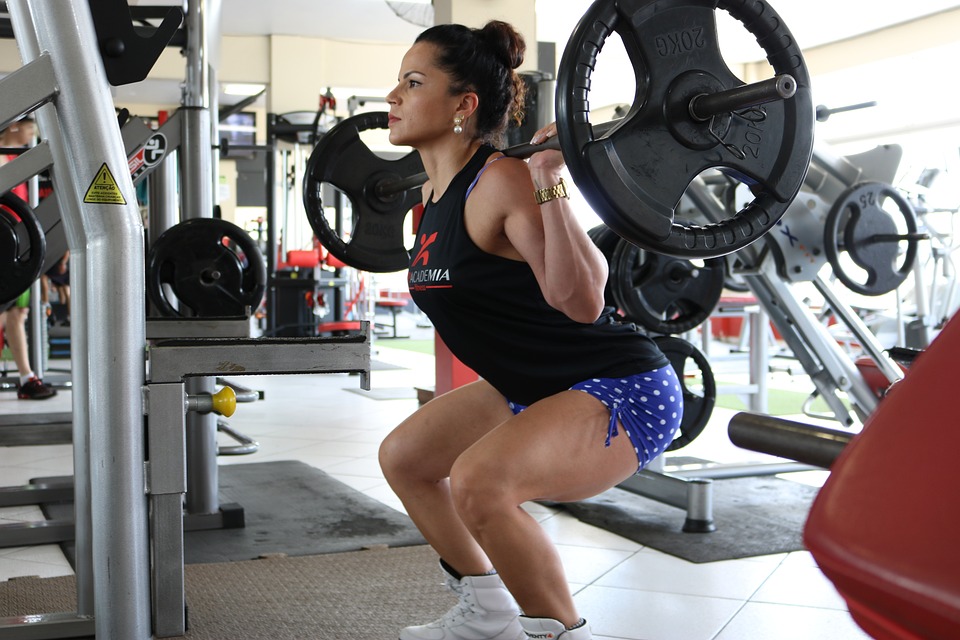
Although there are many quick-fix solutions to weight loss, the most effective way to lose weight and keep it off is to modify your diet and lifestyle. This means making healthier choices and being more active.
In addition to promoting healthy and sustainable weight loss, there are some easy steps you can take to improve your overall health.
- Start strength training
Training that focuses on building muscle mass and strength by contracting the muscles against resistance is called strength training. This type of exercise typically uses weights to provide the resistance.
Studies have found that strength training can lead to multiple health benefits, particularly when it comes to losing fat.
Additionally, resistance training may help lower blood sugar levels and improve insulin sensitivity in people with diabetes. Resistance training for at least 4 weeks may help decrease body fat and improve insulin sensitivity, according to a review of 58 studies.
A different study revealed that 5 months of strength training was more successful in reducing body fat in obese adolescents than aerobic exercise by itself.
In addition, resistance training may help maintain muscle mass, which could increase the number of calories your body burns at rest.
One review found that people who did resistance training had a higher resting metabolic rate than a control group, while aerobic exercise had no effect on metabolism.
Working out with just your bodyweight, and lifting weights are both great ways to start strength training.
- Follow a high-protein diet
If you want to reduce your appetite and increase fat burning, you should try eating more protein-rich foods.
A number of studies have shown that consuming larger amounts of high-quality protein can help to lower the risk of obesity and carrying excess body fat.
Other research indicates that a high protein diet may help preserve muscle mass and metabolism while losing weight.
If you want to lose weight, you should try eating more protein. Protein makes you feel fuller, so you’ll eat less and it also reduces the number of calories you consume.
You might want to try eating foods that are high in protein a few times each day. Some foods that are high in protein are meat, seafood, eggs, legumes, tofu, and dairy products like milk, cheese, and yogurt.
- Get more sleep
Sleeping more can help you lose weight.
One study found that young women who slept for less than 6 hours a night were more likely to become obese over the next 10 years.
A smaller study found that people on a low calorie diet who got one less hour of sleep per night lost less weight than a control group.
Other research has found that not getting enough sleep can lead to changes in the hormones that control hunger, which can make someone more likely to overeat and become obese.
While people may require different amounts of sleep, research has shown that most benefit from getting at least seven hours per night. This is especially true when it comes to weight management and overall health.
If you want to stick to a regular sleep schedule, limit your intake of caffeine in the evening, and minimize your use of electronic devices before bed.
- Eat more healthy fats
Adding more healthy fats to your diet may seem like it would make you gain weight, but it can actually help prevent it.
A study lasting 12 months found that a diet rich in healthy fats from olive oil and nuts resulted in more long-term weight loss than a low-fat diet.
A review found that diets that include olive oil lead to greater weight and fat loss than diets without olive oil.
Diets high in trans fats are linked to weight gain over time.
There are many healthy fats that can be beneficial to your overall health, such as olive oil, coconut oil, avocados, nuts, and seeds.
It’s important to remember that even though healthy fats are not as bad for you as previously thought, they are still high in calories. Try to swap out unhealthy fats for healthy fats.
- Drink unsweetened beverages
One way to promote long-term, sustainable fat loss is by swapping out sugary drinks for healthier selections.
For example, sugar-sweetened beverages like soda often have a lot of calories and not much nutritional value. Alcohol can also add a lot of calories and make you less inhibited, which might make you more likely to overeat.
Both sugar-sweetened beverages and alcohol consumption have been linked to an increased risk of having excess abdominal fat.
Drinking calorie-free beverages like water or green tea instead of sugary drinks is a better choice for your health.
The study found that drinking 1 pint of water before a meal can help reduce hunger and the number of calories eaten during the meal.
Additionally, green tea has caffeine and a lot of antioxidants, which could potentially help with burning fat and increasing metabolism.
- Fill up on fiber
Soluble fiber is found in plant foods and absorbs water. It moves through your digestive tract slowly and helps you feel full for longer.
Some studies say that if you eat more foods that are high in fiber, you may be less likely to gain weight. These foods include fruits, vegetables, things like beans and lentils, whole grains, nuts, and seeds.
Eating more fiber has been linked to weight loss and improved dietary adherence in one study of 345 people.
The review found that those who increased their soluble fiber intake saw a decrease in body weight and belly fat, regardless of how many calories they consumed.
- Choose whole grains instead of refined carbs
If you want to lose weight, you may want to consider reducing the amount of refined carbs you eat.
Refined grains are grains that have had their bran and germ removed, leaving a product that is low in fiber and nutrients.
Refined carbs can cause spikes and crashes in blood sugar levels that lead to increased hunger, but you’re less likely to see these effects if you eat them as part of a balanced meal.
Studies have shown that diets high in refined carbs can cause an increase in belly fat over time.
The opposite is true for diets high in whole grains – they are associated with a lower body mass index and body weight, as well as a smaller waist circumference.
Remember that BMI does not show the whole picture of someone’s health.
The goal is to consume whole grains instead of refined carbs found in pastries, processed foods, pasta, white bread, and breakfast cereals. Some examples of whole grains include whole wheat, quinoa, buckwheat, barley, and oats.
- Increase your cardio
Cardio, also known as aerobic exercise, is a type of exercise that specifically trains the heart and lungs.
Adding cardio to your workout routine may help you burn fat and lose weight.
One review of 15 studies found that increased aerobic exercise is linked to decreased belly fat in middle-aged women.
Other studies have found that aerobic exercise may lead to an increase in muscle mass as well as a decrease in the amount of fat around the waist and overall body fat.
Moderate to vigorous exercise for 150-300 minutes per week, or 20-40 minutes of cardio each day is recommended by most research.
Cardio workouts are any type of physical activity that raises your heart rate. Running, walking, cycling, and swimming are all examples of cardio workouts.
- Eat breakfast with tea or coffee
“If you don’t eat breakfast, you’re essentially running on empty,” Garcia warns. According to Garcia, breakfast is the most important meal of the day. “Eating breakfast allows the body to break the overnight fast and provides carbohydrates for energy to function throughout the day. Without breakfast, you’re essentially running on empty,” she says.
Eating breakfast regularly can have a number of positive effects on your health, including improving your cardiac health, lower the risk of diabetes, and starting your metabolism for the day, according to The Cleveland Clinic.
You need to select a beverage to pair with your breakfast in order to maximize calorie burning. Fortunately, two common morning beverages can improve how you eat breakfast.
“Drinking black coffee or tea can help with weight loss because it’s essentially a calorie-free beverage that is high in antioxidants and anti-inflammatory which can help promote weight loss,” Hunnes continued. “When we consume coffee with a ton of added sweeteners and high-calorie creamers it’s basically turned into a calorie bomb, which our bodies don’t get satiated from (in the same way they do solid foods), so it’s best to drink them black of very lightly sweetened with a teaspoon of sugar and/or plant-based milk.”
The caffeine in coffee has a stimulating effect on your central nervous system, boosts your metabolism, and helps break down fat.
Caffeine has also been shown to help people burn fat during aerobic exercise, especially for those who are not used to working out or are sedentary.
- Try high-intensity interval training (HIIT)
HIIT is a form of exercise that involves quick bursts of activity followed by short periods of recovery in order to keep your heart rate elevated.
Research indicates that HIIT is very successful in increasing fat burning and promoting lasting weight reduction.
A review found that doing HIIT 3 times a week for 10 weeks can help reduce body fat and waist circumference.
HIIT requires less time commitment than moderate-intensity continuous training.
Another study found that HIIT helped people burn up to 30% more calories than other types of exercise, such as cycling or jogging, in the same amount of time.
One easy way to get started with working out is to alternate between walking and jogging or sprinting for 30 seconds at a time. You can also do different exercises like burpees, pushups, or squats with short rests in between.
- Add probiotics to your diet
However, when it comes to your weight, there is still some uncertainty as to whether or not probiotics can help. There is still some uncertainty as to whether probiotics can help with weight loss. Probiotics are a type of beneficial bacteria found in your digestive tract that have been shown to play a role in everything from immunity to mental health.
You can increase the amount of probiotics in your diet by either eating more probiotic-rich foods or by taking supplements. This can also help increase fat burning and help with long-term weight management.
One review of 15 studies showed that people who took probiotics experienced significantly smaller reductions in body weight, fat percentage, and BMI compared with those who took a placebo.
A small study found that people who took probiotic supplements avoided gaining weight or fat when following a high-fat, high-calorie diet.
Probiotics in the genus Lactobacillus may help with weight and fat loss.
You can either take supplements or eat probiotic-rich foods like kefir, tempeh, natto, kombucha, kimchi, and sauerkraut to get a concentrated dose of probiotics every day.
- Try intermittent fasting
While calorie counting may sound like a good idea, it can be very tedious to closely monitor everything you eat. Intermittent fasting can help you consume fewer calories without having to closely track your food intake.
“Intermittent fasting is also an effective eating pattern for losing weight,” Danielle McAvoy, MSPH, RD with Strong Home Gym continued. “A major review of the research found that the average weight loss from all intermittent fasting plans was 7-11 pounds over 10 weeks. IF is effective because it encourages the body to burn fat instead of carbs for energy, and limits eating to certain times of the day which limits calorie intake.”
- Start the day with fiber
When you wake up in the morning, your body starts burning calories immediately. If you choose the right breakfast, you can avoid overeating later in the day. Adding one simple nutrient to your breakfast can make a big difference.
“Eating whole-grain breakfast foods can help with weight loss because the fiber keeps us satiated and can actually keep us fuller longer, decreasing our overall calorie intake,” Dana Ellis Hunnes, PhD, MPH, RD, senior dietitian at UCLA medical center, and author of Recipe for Survival said. “It also keeps our blood sugar levels stable which helps with satiety.”
- Practice mindfulness while eating
Eating slowly and mindfully can help you realize when you’re full and prevent overeating throughout the day.
“Mindfulness is a state of being that focuses on the present moment—being aware and accepting of your thoughts, feelings, and messages from your body,” Alyssa Burnison, MS, RD, LN explained. “When you practice mindful eating, it can have a positive impact on your emotional and physical health, your relationship with food, and possibly, your weight.”
“You are more in tune with your body’s cues,” Burnison continued. “It takes nearly 20 minutes for your stomach to send a message to your brain that you are full. When you slow down and eat mindfully, you recognize when you feel satisfied and stop eating. You may consume fewer calories than if you hurried through your meal, possibly eating more than you need.”
- Embrace the Mediterranean diet
You have probably heard it many times that you can stay fit and lose weight by eating more fatty fish and vegetables. While many people think that the power of this eating pattern comes from fresh and healthy ingredients, the truth is that it comes from an essential nutrient.
“A Mediterranean-style eating pattern is often ranked the best for weight loss because it’s easy to adopt and sustain long-term,” McAvoy said. “A key reason the Mediterranean Diet is so effective is that it’s high in fiber from being largely plant-based. Fiber helps keep blood sugar levels stable, which can reduce hunger levels and cravings. Fiber also makes you feel full after eating, which can curb total calorie intake.”














